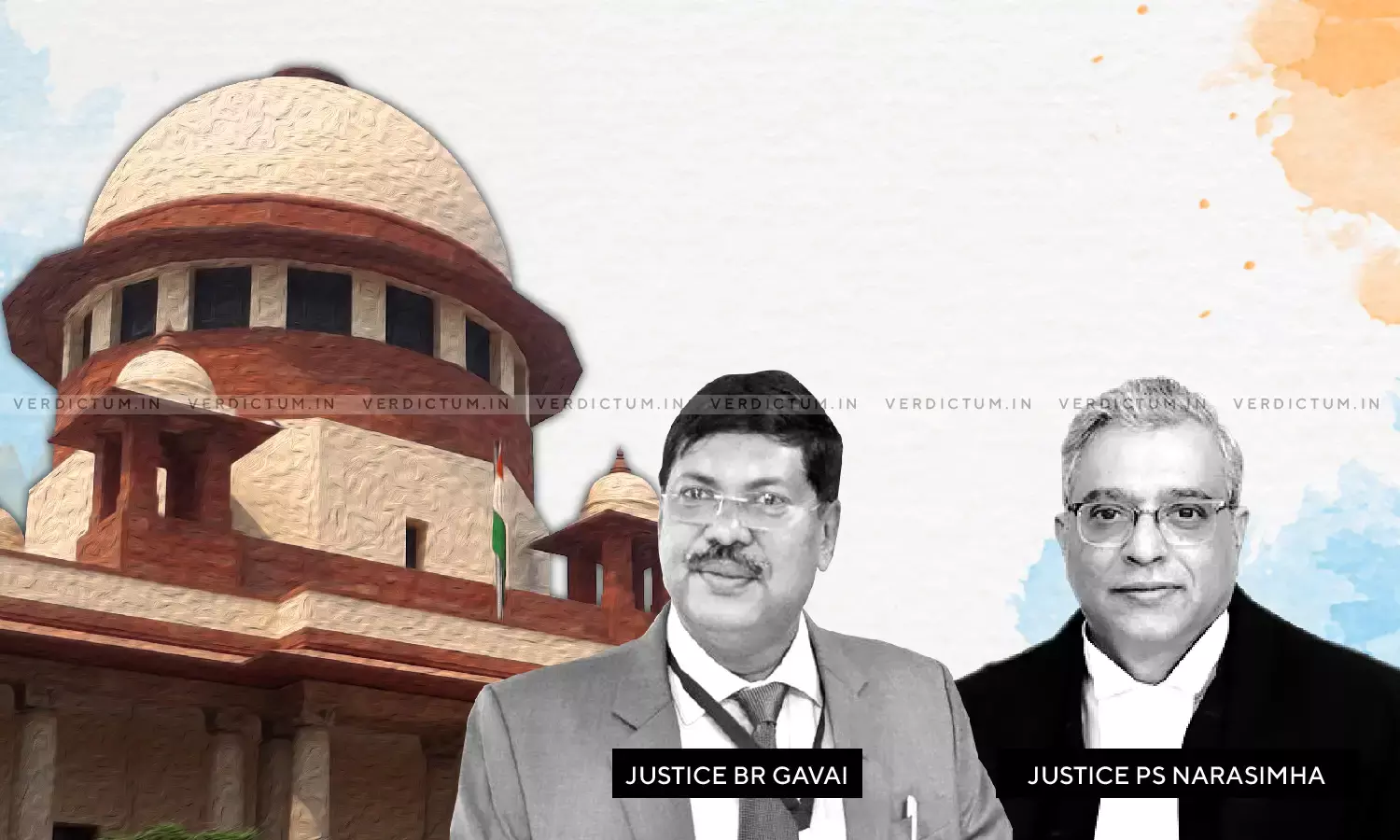PC Act| Delay In Issuance Of Sanction Order Does Not Lead To Quashing Of Criminal Proceedings- SC

The Supreme Court has held that "Non-compliance with a mandatory period cannot and should not automatically lead to the quashing of criminal proceedings because the prosecution of a public servant for corruption has an element of public interest having a direct bearing on the rule of law." The Court held that the Appointing Authority should decide upon the request for sanction within the period of three months (extendable by one more month for legal consultation) under Section 19 of the Prevention of Corruption Act.
The Bench of Justice B.R. Gavai and Justice Pamidighantam Sri Narasimha clarified that the consequence of non-compliance with this mandatory requirement shall not be the quashing of criminal proceedings but rather the aggrieved party, be it the complainant, accused, or victim, would be entitled to approach the concerned writ court.
In this case, the appellant, who was an official of the Central Secretarial Service, Government of India, was alleged to have acquired assets disproportionate to his known source of Income. Thus, an FIR was filed by the CBI under Section 109 of the IPC, 1860 read with sections 13(1)(e) and 13(2) of the Prevention of Corruption Act.
The appellant challenged the order of the Madras High Court allowing a Criminal Revision petition filed by the State against an order of the Trial Court discharging the Appellant on the ground that the order of sanction under Section 19 of the PC Act, is vitiated due to non-application of mind by the sanctioning authority.
Senior Advocate Mahesh Jethmalani and AOR P.V. Yogeswaran appeared for the Appellant and ASG S.V. Raju appeared for the Respondent- DoPT
The issues dealt with by the Court were-
i) Whether the order of sanction is illegal due to non-application of mind and acting as per dictation if the appointing authority, the DoPT refers and considers the opinion and advise of the CVC?
The Bench observed that there was no illegality in the action of the appointing authority, the DoPT, if it calls for, refers, and considers the opinion of the Central Vigilance Commission before it takes its final decision on the request for sanction for prosecuting a public servant.
The Bench also observed that "on the subject of corruption, five legislations I.e., the Cr.P.C, DSPE Act, PC Act, CVC Act and Lokpal Act, must be read together to enable the authorities to sub-serve the common purpose and objectives underlined in these Acts. The Central Vigilance Commission, constituted under the CVC Act is specifically entrusted with the duty and function of providing expert advice on the subject. It may be necessary for the appointing authority to call for and seek the opinion of the CVC before it takes any decision on the request for sanction for prosecution. The statutory scheme under which the appointing authority could call for, seek and consider the advice of the CVC can neither be termed as acting under dictation nor a factor which could be referred to as an irrelevant consideration. The opinion of the CVC is only advisory. It is nevertheless a valuable input in the decision-making process of the appointing authority. The final decision of the appointing authority must be of its own by application of independent mind."
ii) Whether the criminal proceedings could be quashed for the delay in the issuance of the sanction order?
The Court observed that the proviso to Section 19 mandates that the competent authority shall endeavour to convey the decision on the proposal for sanction within a period of three months can only be read and understood as a compelling statutory obligation and by causing a delay in considering the request for sanction, the sanctioning authority stultifies judicial scrutiny, thereby vitiating the process of determination of the allegations against the corrupt official.
The Court further observed that the Parliament intended that the process of grant of sanction must be completed within four months, which includes the extended period of one month only after recording the reasons in writing.
Accordingly, the Bench dismissed the Appeal and held that upon the expiry of the three months and the additional one-month period, the aggrieved party, be it the complainant, accused or victim, would be entitled to seek appropriate remedies against the sanctioning authorities.
Cause Title: Vijay Rajmohan v. State Represented By The Inspector of CBI, ACB, Chennai, Tamil Nadu
Click here to read/download the Judgment

